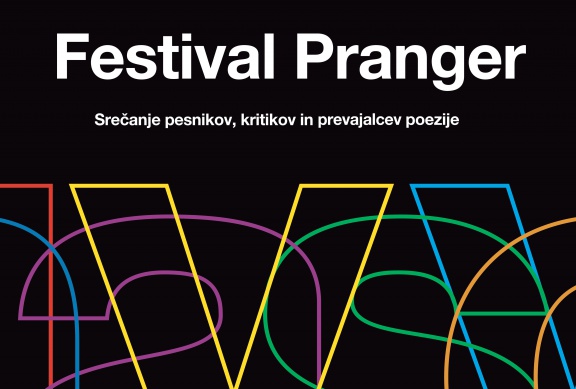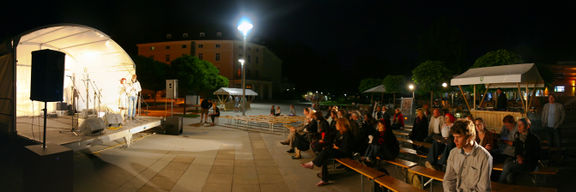Difference between revisions of "Pranger Festival"
(A✔) |
(English proofreading 1; PROOFREAD DONE (see talk)) |
||
| Line 1: | Line 1: | ||
{{Article | {{Article | ||
| − | | status = | + | | status = NIFERTIK! |
| maintainer = Anja Mrak | | maintainer = Anja Mrak | ||
}} | }} | ||
| Line 21: | Line 21: | ||
{{Teaser| | {{Teaser| | ||
| − | The international [[Pranger Festival]], a meeting of poets, critics and poetry translators, has been organised every summer since [[established::2004]] in Rogaška Slatina and Rogatec by the [[KUD Pranger Cultural Association]]. The festival is named after the pranger, a medieval pillory or public humiliation device which was set up in the centre of villages in this region | + | The international [[Pranger Festival]], a meeting of poets, critics, and poetry translators, has been organised every summer since [[established::2004]] in Rogaška Slatina and Rogatec by the [[KUD Pranger Cultural Association]]. The festival is named after the "pranger", a medieval pillory or public humiliation device which was set up in the centre of villages in this region, since the festival's concept is to disclose the literary word to the public, from literary critics, theoreticians and translators, to readers and other writers. Meetings, panel discussions and readings of poetry are organised during the three-day event. |
}} | }} | ||
==Programme== | ==Programme== | ||
| − | Nine Slovene poets, three critics and three translators of Slovene poetry are invited to participate at the festival. Nine collections of poetry published in the previous year are chosen by three guest critics, examined and discussed. These critical analyses of select poetry collections are then published in the newspaper [[Večer Newspaper|''Večer'']]. Every year a different | + | Nine Slovene poets, three critics and three translators of Slovene poetry are invited to participate at the festival. Nine collections of poetry published in the previous year are chosen by three guest critics, examined and discussed. These critical analyses of select poetry collections are then published in the newspaper [[Večer Newspaper|''Večer'']]. Every year a different country and its language, into which Slovene poetry is translated, is put to the forefront. In cooperation with the [[Slovene Writers’ Association]] distinguished guests from the selected country are invited to take part in the events of the festival. The confrontation of authors, translators and critics allows for new and varied perspectives on poetry and forms the very heart of the event. |
| − | In addition to panel discussions and meetings the festival is further enhanced by round tables on topical issues and translations, translation workshops and ELA, a creative afternoon for children and young people, named after [[Ela Peroci]], a renowned Slovene writer of children literature. Young and budding artists are invited to participate in literary and art competitions and in creative workshops. The ELA programme is accompanied by theatrical performances. | + | In addition to panel discussions and meetings, the festival is further enhanced by round tables on topical issues and translations, translation workshops and ELA, a creative afternoon for children and young people, named after [[Ela Peroci]], a renowned Slovene writer of children literature. Young and budding artists are invited to participate in literary and art competitions and in creative workshops. The ELA programme is accompanied by theatrical performances. |
== See also == | == See also == | ||
Revision as of 22:24, 1 August 2011
Programme
Nine Slovene poets, three critics and three translators of Slovene poetry are invited to participate at the festival. Nine collections of poetry published in the previous year are chosen by three guest critics, examined and discussed. These critical analyses of select poetry collections are then published in the newspaper Večer. Every year a different country and its language, into which Slovene poetry is translated, is put to the forefront. In cooperation with the Slovene Writers’ Association distinguished guests from the selected country are invited to take part in the events of the festival. The confrontation of authors, translators and critics allows for new and varied perspectives on poetry and forms the very heart of the event.
In addition to panel discussions and meetings, the festival is further enhanced by round tables on topical issues and translations, translation workshops and ELA, a creative afternoon for children and young people, named after Ela Peroci, a renowned Slovene writer of children literature. Young and budding artists are invited to participate in literary and art competitions and in creative workshops. The ELA programme is accompanied by theatrical performances.




